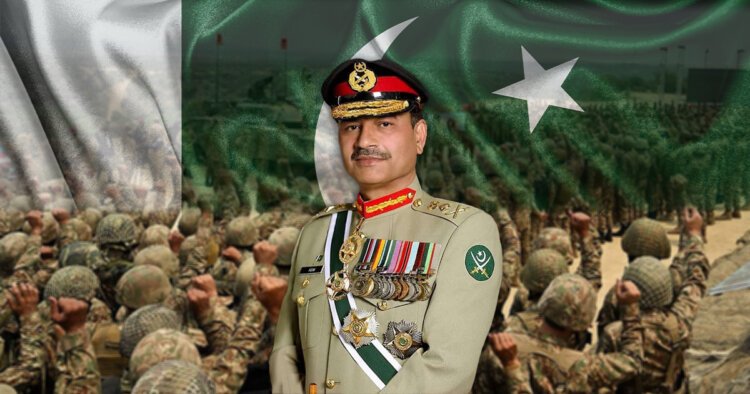The Pakistan Army has officially dispelled rumours suggesting that Chief of Army Staff (COAS) and Field Marshal General Syed Asim Munir is aiming to become the President of Pakistan.
In remarks given to The Economist, Director General of ISPR Lieutenant General Ahmed Sharif Chaudhry categorically denied the speculation, calling it “entirely baseless.” He emphasized that there is no truth to any such intentions from the military’s side.
These comments echo a previous clarification issued by Interior Minister Mohsin Naqvi in July, who had also rejected social media speculation about President Asif Ali Zardari being asked to step down. Naqvi labeled the talk a “malicious campaign” and stated that no such discussions had taken place.
According to The Economist, General Munir’s reputation has risen sharply following his leadership during the May border conflict with India. Combined with the government coalition’s two-thirds majority in parliament, this rise in popularity has led to speculation about a possible presidential shift.
Responding to aggressive posturing by Indian Prime Minister Narendra Modi, DG ISPR issued a stern warning: “This time, we will start from the East of India.” He further declared that any future aggression from India would be met with “deep strikes” and forceful retaliation.
Chaudhry reiterated that the army chief’s complete focus is on safeguarding Pakistan’s national interests, not political office. “The sole focus of the COAS is the strength and stability of Pakistan — nothing else,” he said.
Earlier in May, President Asif Ali Zardari and Prime Minister Shehbaz Sharif conferred the prestigious rank of Field Marshal upon General Munir. The decision was approved by the federal cabinet, with ministers praising the successful execution of Operation Bunyanum Mursoos, which thwarted Indian incursions and upheld national sovereignty.
General Munir became the second person in Pakistan’s history to attain the Field Marshal rank, after General Ayub Khan in 1959. His leadership during Operation Marka-i-Haq also drew international recognition. In a rare meeting at the White House, former U.S. President Donald Trump praised Munir’s efforts in de-escalating Indo-Pak tensions, calling him a “key figure” in maintaining regional peace.



